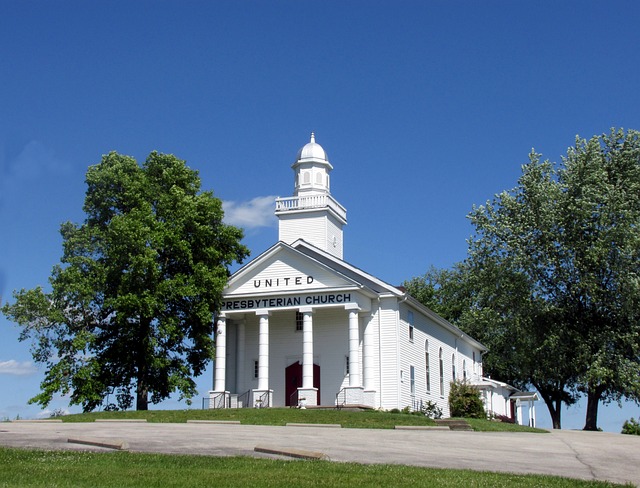The Presbyterian Church (USA) is a Protestant Christian denomination that traces its roots back to the Reformation era. It is known for its adherence to the theological teachings of John Calvin, who was a prominent figure in the development of Reformed theology. As such, the Presbyterian Church (USA) can be considered Calvinist in its theological orientation.
Table of Contents
The Origins and Beliefs of Presbyterian USA
Presbyterian USA is a denomination within the broader Presbyterian tradition, which traces its roots back to the Protestant Reformation in the 16th century. The name “Presbyterian” comes from the Greek word “presbyteros,” meaning elder, which reflects the church’s emphasis on shared leadership and governance by a body of elders.
One of the key figures in the development of Presbyterianism was John Calvin, a French theologian who lived in the 16th century. Calvin’s teachings, known as Calvinism, had a profound influence on the Reformed tradition, including Presbyterianism. Calvinism emphasizes the sovereignty of God, the total depravity of humanity, and the doctrine of predestination.
So, is Presbyterian USA Calvinist? The answer is not a simple yes or no. While Presbyterian USA is rooted in the Reformed tradition and shares many theological beliefs with Calvinism, it is not exclusively Calvinist. The denomination allows for a diversity of theological perspectives within its congregations, and individuals may hold a range of beliefs within the broader framework of Presbyterianism.
Presbyterian USA affirms the essential tenets of the Reformed tradition, including the authority of Scripture, the sovereignty of God, and the need for salvation through Jesus Christ. However, the denomination also recognizes the importance of individual conscience and interpretation of Scripture, allowing for a variety of theological perspectives on certain issues.
For example, while Calvinism teaches the doctrine of predestination, which holds that God has chosen certain individuals for salvation, Presbyterian USA takes a more inclusive approach. The denomination affirms the concept of election but also emphasizes the importance of human response to God’s grace. This means that while some Presbyterians may hold to a more Calvinistic understanding of predestination, others may interpret it differently or reject it altogether.
Another area where Presbyterian USA diverges from strict Calvinism is in its approach to worship and sacraments. Calvinism traditionally emphasizes simplicity and the centrality of the Word in worship, while Presbyterian USA congregations may incorporate a variety of worship styles and practices. The denomination also practices the sacraments of baptism and the Lord’s Supper, which are important elements of Presbyterian worship.
In summary, while Presbyterian USA is rooted in the Reformed tradition and shares many theological beliefs with Calvinism, it is not exclusively Calvinist. The denomination allows for a diversity of theological perspectives within its congregations, and individuals may hold a range of beliefs within the broader framework of Presbyterianism. Presbyterian USA affirms the essential tenets of the Reformed tradition but also recognizes the importance of individual conscience and interpretation of Scripture. So, while Calvinism has had a significant influence on Presbyterian USA, it is not accurate to say that the denomination is strictly Calvinist.
Understanding the Role of Calvinism in Presbyterian USA

Is Presbyterian USA Calvinist?
When it comes to understanding the role of Calvinism in Presbyterian USA, it’s important to delve into the history and beliefs of this religious denomination. Presbyterian USA is a branch of the larger Presbyterian Church, which traces its roots back to the Protestant Reformation in the 16th century. At the heart of the Reformation was John Calvin, a French theologian whose teachings had a profound impact on the development of Presbyterianism.
Calvinism, named after John Calvin, is a theological system that emphasizes the sovereignty of God and the doctrine of predestination. It teaches that God has predestined certain individuals to be saved and others to be damned, and that human beings have no control over their own salvation. This belief in predestination is a central tenet of Calvinism and has had a significant influence on Presbyterian theology.
In Presbyterian USA, the influence of Calvinism can be seen in its confessional documents, particularly the Westminster Confession of Faith. This confession, adopted in the 17th century, outlines the core beliefs of the Presbyterian Church and reflects the Calvinist theology that underpins Presbyterianism. It affirms the sovereignty of God, the fallen nature of humanity, and the need for salvation through faith in Jesus Christ.
However, it is important to note that not all Presbyterians in the USA adhere strictly to Calvinist theology. While Calvinism has historically been a dominant force within Presbyterianism, there is a diversity of beliefs within the denomination. Some Presbyterians may hold more moderate or liberal views, deviating from the strict Calvinist doctrine of predestination.
Presbyterian USA is known for its commitment to social justice and inclusivity, which may sometimes be at odds with certain aspects of Calvinist theology. For example, the belief in predestination can raise questions about the fairness and justice of God’s actions. This tension between Calvinist theology and the values of social justice has led some Presbyterians to adopt a more inclusive and progressive interpretation of their faith.
In recent years, there has been ongoing debate within Presbyterian USA about the role of Calvinism in the denomination. Some argue for a return to a more traditional Calvinist theology, while others advocate for a more inclusive and diverse understanding of Presbyterianism. This debate reflects the ongoing tension between tradition and progress within religious communities.
Ultimately, whether or not Presbyterian USA is Calvinist depends on how one defines Calvinism. While the influence of Calvinist theology can be seen in the denomination’s history and confessional documents, there is also room for a diversity of beliefs within Presbyterianism. The denomination’s commitment to social justice and inclusivity may lead some Presbyterians to interpret their faith in ways that deviate from strict Calvinist doctrine.
In conclusion, Presbyterian USA has deep roots in Calvinist theology, but the denomination is not strictly Calvinist. The influence of Calvinism can be seen in its history, confessional documents, and theological traditions. However, there is also room for diversity of beliefs within Presbyterianism, and some Presbyterians may hold more moderate or liberal views. The ongoing debate within the denomination reflects the tension between tradition and progress, as Presbyterians grapple with the role of Calvinism in their faith.
Examining the Doctrinal Similarities between Presbyterian USA and Calvinism
Is Presbyterian USA Calvinist?
When it comes to religious denominations, there are often many questions and misconceptions surrounding their beliefs and doctrines. One such denomination that has sparked curiosity is the Presbyterian Church USA, commonly known as Presbyterian USA. Many people wonder if this denomination aligns with Calvinism, a theological system associated with the teachings of John Calvin. In this article, we will examine the doctrinal similarities between Presbyterian USA and Calvinism to shed light on this intriguing question.
To begin our exploration, it is important to understand the basic tenets of Calvinism. Calvinism emphasizes the sovereignty of God in all aspects of life, including salvation. It teaches that humanity is inherently sinful and incapable of saving themselves. Instead, salvation is solely a result of God’s grace and predestination. This means that God has already chosen who will be saved and who will not, regardless of any human effort or merit.
Now, let’s turn our attention to Presbyterian USA. This denomination traces its roots back to the Protestant Reformation and has a rich history that has shaped its beliefs and practices. Presbyterian USA holds to the Westminster Confession of Faith, a document that outlines its theological positions. Interestingly, the Westminster Confession of Faith is heavily influenced by Calvinism, which suggests a strong connection between Presbyterian USA and Calvinistic beliefs.
One of the key areas where Presbyterian USA aligns with Calvinism is the doctrine of predestination. Both Calvinism and Presbyterian USA affirm the idea that God has predestined certain individuals for salvation. This means that before the foundation of the world, God has chosen who will be saved and who will not. This belief in predestination is a fundamental aspect of Calvinism and is also embraced by Presbyterian USA.
Another area of doctrinal similarity between Presbyterian USA and Calvinism is the emphasis on the sovereignty of God. Both believe that God is in control of all things and that nothing happens outside of His will. This understanding of God’s sovereignty extends to salvation as well. Presbyterian USA, like Calvinism, teaches that salvation is solely a result of God’s grace and not based on any human effort or merit.
Furthermore, Presbyterian USA shares Calvinism’s belief in the total depravity of humanity. Both hold that all people are born with a sinful nature and are incapable of saving themselves. This means that salvation is entirely dependent on God’s grace and intervention. Presbyterian USA, like Calvinism, recognizes the need for God’s transformative work in the lives of individuals.
In conclusion, it is evident that there are significant doctrinal similarities between Presbyterian USA and Calvinism. Both embrace the idea of predestination, emphasize the sovereignty of God, and recognize the total depravity of humanity. These shared beliefs highlight the strong connection between Presbyterian USA and Calvinistic theology. While there may be variations within the denomination, it is safe to say that Presbyterian USA can be considered Calvinist in its theological framework.
Debunking Misconceptions: Is Presbyterian USA Exclusively Calvinist?
When it comes to religious denominations, there are often misconceptions and misunderstandings. One such misconception is that the Presbyterian Church (USA) is exclusively Calvinist. However, this is not entirely accurate. While it is true that the Presbyterian Church has its roots in the teachings of John Calvin, it is important to understand that not all Presbyterians adhere strictly to Calvinist theology.
To fully grasp the diversity within the Presbyterian Church (USA), it is essential to have a basic understanding of Calvinism. Calvinism is a theological system that emphasizes the sovereignty of God, the total depravity of humanity, and the concept of predestination. These ideas were developed by John Calvin during the Protestant Reformation in the 16th century and have had a significant influence on Presbyterian theology.
However, it is crucial to note that the Presbyterian Church (USA) is a diverse denomination that encompasses a wide range of theological perspectives. While many Presbyterians do embrace Calvinist theology, there are also those who hold more moderate or liberal views. This diversity is reflected in the church’s official statements and documents, which allow for a variety of interpretations and beliefs.
One of the reasons for this diversity within the Presbyterian Church (USA) is its commitment to the Reformed tradition. The Reformed tradition, of which Calvinism is a part, emphasizes the ongoing need for the church to be reformed and reformed according to the Word of God. This commitment to ongoing reform allows for different theological perspectives to coexist within the denomination.
Another factor that contributes to the diversity within the Presbyterian Church (USA) is its commitment to the principle of “the priesthood of all believers.” This principle asserts that all members of the church have the right and responsibility to interpret Scripture and participate in the life of the church. This means that individual Presbyterians are free to hold their own theological beliefs within certain broad parameters set by the denomination.
It is also worth noting that the Presbyterian Church (USA) is a connectional church, meaning that it is organized into a hierarchical structure. This structure allows for a diversity of theological perspectives to be represented and debated within the church. Decisions on matters of theology and practice are made through a process of discernment and consensus-building, involving representatives from all levels of the church.
In conclusion, while the Presbyterian Church (USA) has its roots in Calvinist theology, it is not exclusively Calvinist. The denomination embraces a wide range of theological perspectives, allowing for diversity and ongoing reform. This commitment to diversity is reflected in the church’s official statements and documents, as well as its organizational structure. So, the next time someone asks if the Presbyterian Church (USA) is Calvinist, you can confidently say that while Calvinism is an important part of its history and theology, it is not the only theological perspective within the denomination.
Conclusion
Yes, the Presbyterian Church (USA) is considered to be Calvinist.


